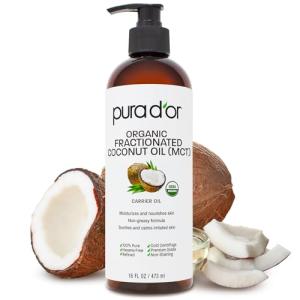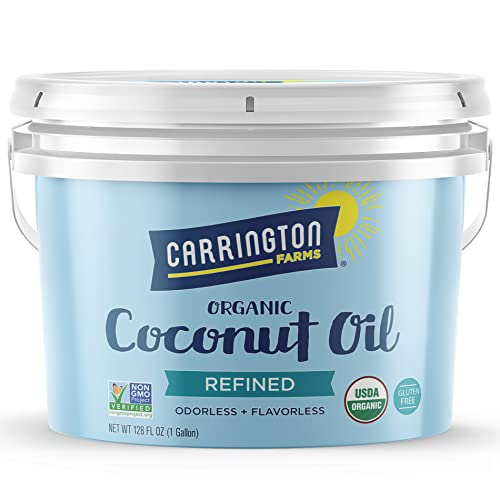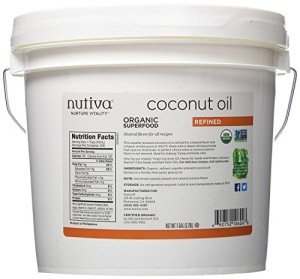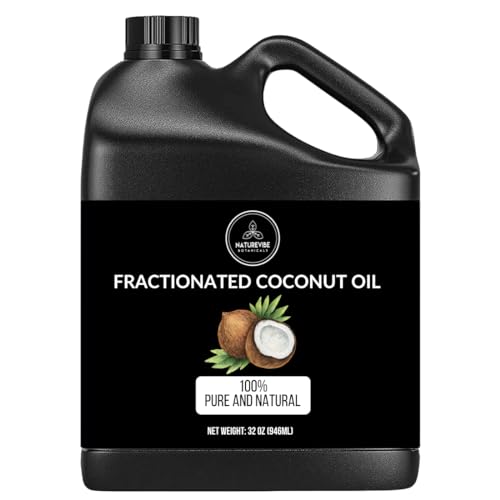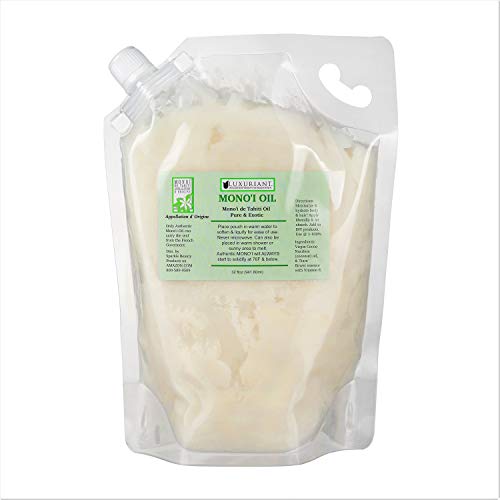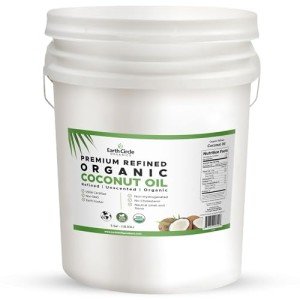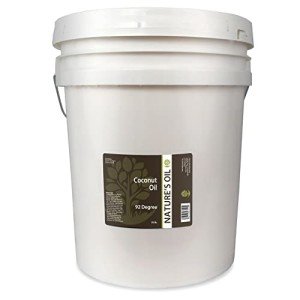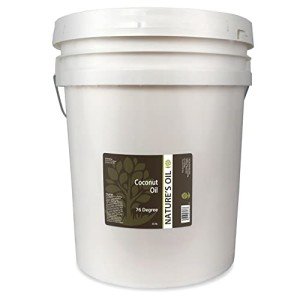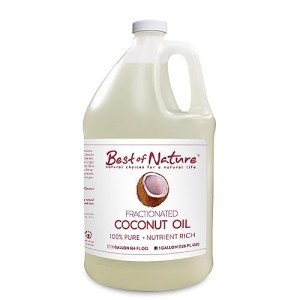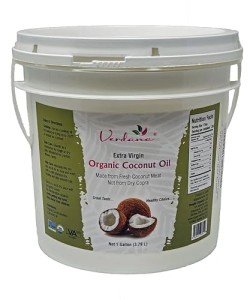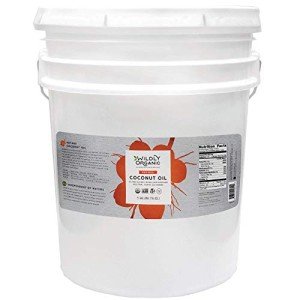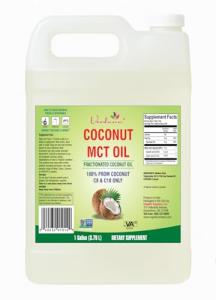Fatty Acid Profile of Coconut Oil
Coconut oil is composed of several fatty acids, many of which are beneficial for the skin. Here’s a breakdown of its most notable fatty acids and their properties:
-
Lauric Acid (45-55%)
- Properties: Lauric acid is the most abundant fatty acid in coconut oil and is responsible for many of its antimicrobial properties. It has strong antiviral, antibacterial, and antifungal effects, making coconut oil an excellent ingredient for fighting acne and other skin infections.
- Benefits in Skincare: Lauric acid helps cleanse the skin, removing bacteria and excess oil, which can be especially beneficial for acne-prone skin. It also supports the skin’s natural barrier, keeping it hydrated and protected.
-
Caprylic Acid (5-10%)
- Properties: Caprylic acid has antifungal and antimicrobial properties, making it ideal for treating skin conditions such as fungal infections or dermatitis. It also contributes to the oil’s skin-softening abilities.
- Benefits in Skincare: Caprylic acid is excellent for soothing dry or inflamed skin. It helps to improve skin texture by promoting the growth of new skin cells while maintaining moisture balance.
-
Capric Acid (5-10%)
- Properties: Like caprylic acid, capric acid also has antifungal and antibacterial effects. It can help reduce inflammation and is often used to treat conditions such as eczema and psoriasis.
- Benefits in Skincare: Capric acid has soothing and anti-inflammatory effects, which makes coconut oil great for calming irritated skin. It can also help strengthen the skin's natural defenses, enhancing its ability to retain moisture.
-
Myristic Acid (16-19%)
- Properties: Myristic acid is a saturated fatty acid that helps to emulsify and stabilize oil-based products. It also contributes to the oil’s ability to penetrate the skin.
- Benefits in Skincare: Myristic acid has cleansing and foaming properties, which make it an excellent ingredient in soap-making. It aids in the formation of a rich lather while gently removing dirt and impurities from the skin.
-
Palmitic Acid (7-9%)
- Properties: Palmitic acid is a saturated fatty acid commonly found in many plant and animal oils. It helps to create a protective layer on the skin, which helps to lock in moisture.
- Benefits in Skincare: Palmitic acid contributes to the emollient properties of coconut oil, ensuring that the skin remains soft, smooth, and hydrated. It helps to reduce the appearance of dryness and can even provide some mild anti-aging benefits.
-
Oleic Acid (5-8%)
- Properties: Oleic acid is a monounsaturated fatty acid found in many oils, such as olive oil. It has hydrating and skin-conditioning properties.
- Benefits in Skincare: Oleic acid helps to improve skin elasticity and promotes a healthy moisture balance. It works synergistically with other fatty acids in coconut oil to nourish and hydrate the skin.
-
Linoleic Acid (1-2%)
- Properties: Linoleic acid is an essential fatty acid (omega-6) that is crucial for maintaining the integrity of the skin’s barrier function.
- Benefits in Skincare: Linoleic acid helps maintain the skin’s moisture balance and reduces the appearance of clogged pores. It’s particularly helpful for those with oily or acne-prone skin.
Benefits of Coconut Oil in Handmade Soaps and Cosmetics
1. Moisturizing and Hydrating
One of the primary reasons coconut oil is used in skincare is its ability to deeply hydrate and moisturize the skin. The fatty acids in coconut oil are absorbed quickly by the skin, providing long-lasting hydration without feeling greasy. Coconut oil is particularly beneficial for dry or flaky skin, as it helps replenish moisture and restore softness.
When used in handmade soaps, coconut oil helps produce a rich, creamy lather that cleanses the skin without stripping it of its natural oils. It’s often used in combination with other oils like olive or castor oil to create a balanced, nourishing soap bar that leaves the skin feeling smooth and soft.
2. Antibacterial and Antifungal Properties
Thanks to its high lauric acid content, coconut oil is naturally antibacterial, antiviral, and antifungal. These properties make it effective in treating acne, preventing body odor, and even helping with fungal skin infections such as athlete’s foot or ringworm.
In soaps, coconut oil’s ability to fight bacteria and fungi makes it a great option for cleansing the skin and maintaining a healthy skin microbiome. It’s also a common ingredient in natural deodorants and body scrubs.
3. Anti-Aging Effects
Coconut oil is packed with antioxidants such as vitamin E, which help to neutralize free radicals that contribute to premature aging. The oil also stimulates collagen production, which improves skin elasticity and reduces the appearance of fine lines and wrinkles.
In anti-aging skincare products like lotions and serums, coconut oil helps to promote a youthful complexion by deeply moisturizing the skin and supporting its natural healing process. It’s often found in facial oils, balms, and night creams for its rejuvenating effects.
4. Gentle Cleanser
The mild cleansing action of coconut oil makes it an excellent base for handmade soaps. It helps to break down impurities, dirt, and excess oils from the skin without causing irritation. Coconut oil also acts as a natural emollient, keeping the skin soft and hydrated after cleansing.
For people with sensitive skin or those prone to conditions like eczema or rosacea, coconut oil-based products provide a gentle, non-stripping option for daily cleansing and moisturizing.
5. Healing and Soothing Properties
Coconut oil is widely used in healing balms and salves due to its ability to soothe irritated or damaged skin. It helps calm redness, reduce inflammation, and promote faster skin recovery.
In handmade soaps, coconut oil is particularly effective for calming sensitive or inflamed skin. It’s also used in formulations for chapped lips, rough patches, or minor burns, offering relief and aiding the skin’s natural healing process.
How to Use Coconut Oil in Handmade Soaps and Cosmetics
In Soap Making:
Coconut oil is a staple in cold process soap making, where it’s often used as the primary fat due to its excellent lathering properties. Typically, it’s used in combination with other oils, such as olive or palm oil, to create a well-balanced soap. Coconut oil helps create a bubbly, rich lather while providing deep moisture and cleansing power.
In Cosmetics:
Coconut oil can be used as a base in a variety of skincare products. It’s found in face creams, lip balms, body lotions, and hair treatments. It can be applied directly to the skin as a moisturizer or as a makeup remover, due to its gentle cleansing properties.
In Hair Care:
Coconut oil is often used in conditioners and hair masks to restore moisture and promote healthy hair growth. Its fatty acids help nourish the scalp and protect the hair from damage.
Conclusion
Coconut oil is a multifaceted ingredient in the world of handmade soaps and cosmetics. With its rich fatty acid profile—particularly lauric acid, caprylic acid, and myristic acid—coconut oil offers powerful antimicrobial, moisturizing, and soothing benefits. Whether you’re looking to hydrate your skin, fight acne, or achieve a rich, foamy lather in your soap, coconut oil is a natural and effective solution. Its wide range of benefits makes it an indispensable ingredient in skincare, and it continues to be a favorite for both professional formulators and DIY enthusiasts alike.
